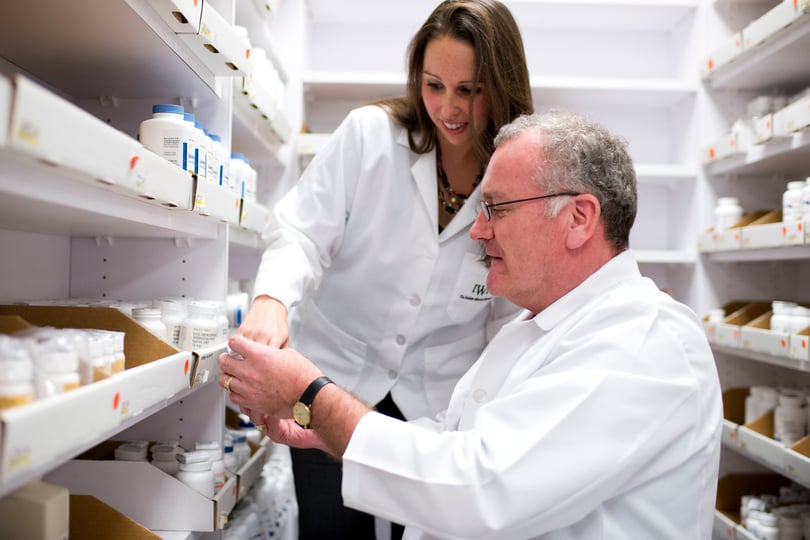
When faced with an injury, our instincts tell us to surround ourselves with loved ones for comfort and support. But how often do we consider the importance of building a strong treatment team?
Every member of your treatment team plays a vital role in helping you recover. Trained in different professional areas and equipped with diverse skills, health care professionals see injuries from different perspectives, but all have one goal in mind – achieving optimum recovery.
In their ever-expanding role, pharmacists have become one of the most accessible health professionals to the public. From providing overall guidance and consultations on medications to reviewing patient profiles for potential adverse drug reactions, Pharmacists do much more than count pills.
If you’ve been injured in an accident, consider a pharmacists role in your recovery. Here are five reasons to have a pharmacist as part of your treatment team:
- Their accessibility is unmatched. Pharmacists are available to provide guidance in taking prescription medications – including educating patients on possible side effects, adherence benefits and any other instructions that maximize its outcome.
- You might find yourself a happier, healthier patient. Enhanced patient satisfaction, increased access to immunization and better outcomes all come with having a pharmacist on board.
- They’re medication experts. Pharmacists provide expertise in medication safety, effectiveness and the drugs chemical makeup. They’re committed to improving the quality of their patients’ lives and lending a listening ear along the way.
- Not every injury is the same and not every medication works the same way on each patient. Pharmacists work in connection with your prescriber to make medication recommendations based on your injury and medication history.
- Pharmacists can provide comprehensive medication management. These types of assessments help resolve medication related problems, like adverse drug reactions, and also help identify potential high risk combinations.
It’s no surprise that 76 percent of patients already consider their pharmacist as part of their health care team. As the role of pharmacists continue to grow within the health care and workers’ compensation industry, interactions between patient and pharmacist will likely continue to grow stronger and more frequent, helping patients in pain work towards a better tomorrow.

